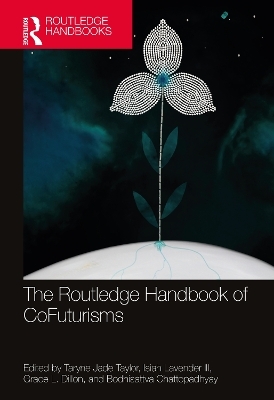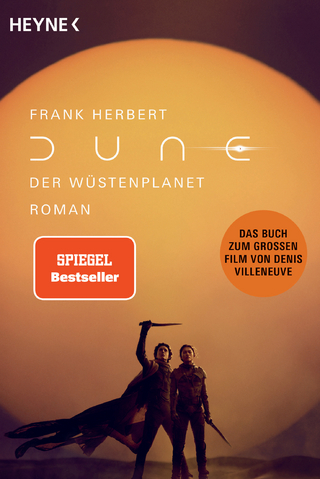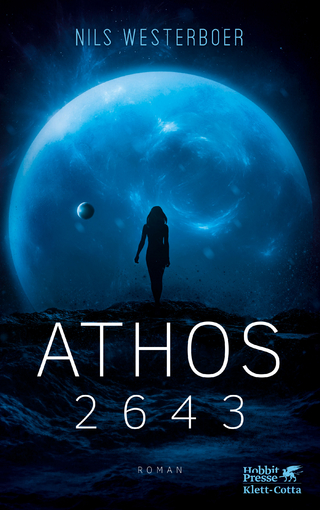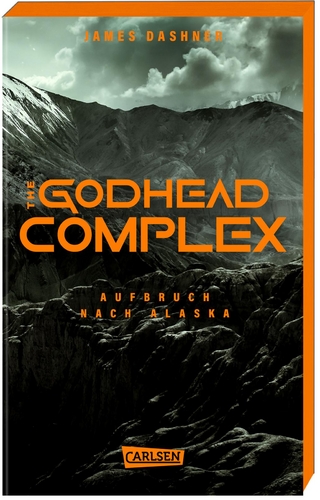
The Routledge Handbook of CoFuturisms
Routledge (Verlag)
978-0-367-33061-3 (ISBN)
This comprehensive overview of the field explores representations of possible futures arising from non-Western cultures and ethnic histories that disrupt the “imperial gaze”. In four parts, The Routledge Handbook of CoFuturisms considers the look of futures from the margins, foregrounding the issues of Indigenous groups, racial, ethnic, religious, and sexual minorities, and any people whose stakes in the global order of envisioning futures are generally constrained due to the mechanics of our contemporary world.
The book extends current discussions in the area, looking at cutting-edge developments in the discipline of science fiction and diverse futurisms as a whole. Offering a dynamic mix of approaches and expansive perspectives, this volume will appeal to academics and researchers seeking to orient their own interventions into broader contexts.
Taryne Jade Taylor is Advanced Assistant Professor of Science Fiction at Florida Atlantic University. Her research focuses on the politics of representation in speculative fiction, particularly feminist science fiction and diasporic Latinx Futurisms. She firmly believes science fiction and fantasy build paths to a better, inclusive future, which is why her research focuses on diversity, inclusion, and justice as presented in the secondary worlds of the fantastic. Isiah Lavender III is Sterling-Goodman Professor of English at the University of Georgia, where he researches and teaches courses in African American literature and science fiction. He is the author/editor of six books, including Afrofuturism Rising: The Literary Prehistory of a Movement (2019) and the interview collection Conversations with Nalo Hopkinson (2023). He is currently completing the first draft of Future Pasts: Race and Speculative Fictions. Finally, he edits for Extrapolation. Grace L. Dillon (Anishinaabe) is Professor in the Indigenous Nations Studies Program at Portland State University in Portland, Oregon, where she teaches undergraduate and graduate course on a range of interests including Native American and Indigenous studies, science fiction, Indigenous cinema, popular culture, race and social justice, and early modern literature. She is the editor of Walking the Clouds: An Anthology of Indigenous Science Fiction (2012) and Hive of Dreams: Contemporary Science Fiction from the Pacific Northwest (2003). Bodhisattva Chattopadhyay is Associate Professor in Global Culture Studies at the Department of Culture Studies and Oriental Languages at the University of Oslo. He is Principal Investigator of the European Research Council project “CoFutures: Pathways to Possible Presents” as well as Principal Investigator of the Norwegian Research Council project “Science Fictionality” in addition to running the Holodeck, a state-of-the-art Games Research Lab at the University of Oslo.
Introduction to CoFuturisms
Taryne Jade Taylor
Part I
Indigenous Futurisms
The Future Imaginary
Jason Edward Lewis
‘Lands of Chemical Death’: Toxic Survivance in Bunky Echo-Hawk’s ‘Gas Masks as Medicine’ and Misha’s Red Spider White Web
Stina Attebery
Water, Fire, Earth: Darcie Little Badger’s "Ku Ko Né Ä" Series
Kristina Andrea Baudemann
Contact, Rationalism, and Indigenous Queer Natures in Ellen Van Neerven’s "Water"
Arlie Alizzi
Wayfinding Pasifikafuturism: An Indigenous Science Fiction Vision of the Ocean in Space
Gina Cole
Creating Collaborative Digital Poetic Worlds in the Video Poetry of Heid Erdrich and Kathy Jetñil-Kiijiner
Kasey Jones-Matrona
Indigenous Young Adult Dystopias
Graham J. Murphy
Centering Two-Spirit and Indigiqueer Futurisms
Channette Romero
Blackfella Futurism: Speculative Fiction Grounded in Grassroots Sovereignty Politics
Mykaela Saunders
Anthologizing the Indigenous Environmental Imaginary: Moonshot Volume 3 and Ecocritical Futurisms
Conrad Scott
Speculative Landscapes of Contemporary North American Indigenous Fiction
Julia Siepak
Russell Bates (Kiowa): Eco-SF and Indigenous Futurisms
Patrick Sharp
Welcome to the World of Tomorrow: Terrestrial Sovereignty and Decolonial Apocalypse in Indigenous Futurist Writing
Anne Stewart
Coding Potawatomi Cosmologies: Elements of Bodwéwadmi Futurisms
Blaire Morseau
(Re)writing and (Re)beading: Understanding Indigenous Women’s Roles in the
Creation of Indigenous Futurisms
Emily C. Van Alst
Okinawa Q (an Uckinanchu Futurism): Okinawans Rectify the Unbalanced View of Nature Through Tokusatsu Television and Film
Kenrick H. Kamiya-Yoshida
Part II
Latinx Futurisms
The Economic Migrant and the Specter of Permanence in Why Cybraceros?, The Rag Doll Plagues, and Walk on Water
Catherine S. Ramírez
The Creative Technologists of ADÁL’s Out of Focus Nuyoricans and Ralph Ellison’s Invisible Man
Matthew David Goodwin
Indigenous and Western Sciences in Carlos Hernandez’s The Assimilated Cuban’s Guide to Quantum Santeria
Joy Sanchez-Taylor
Conjurando poderes de existencia: Depictions of Sabidurías in the Latin American Speculative Fiction Series, Siempre Bruja
Vanessa J. Aguilar
Utopic Rage: Transforming the Future Through Narratives of Black Feminine Monstrosity and Rage
Cassandra Scherr
Grounding the Future – Locating Senior’s "Grung" Poetics in Tobias Buckell’s Speculative Fiction
Jacinth Howard
Recursive Origins and Distributed Cognitive Assemblages in Anthony Joseph’s The African Origins of UFOs
Liam Wilby
Alejandro Morales’ The Rag Doll Plagues: Chican@/Latinx Futurism – Between Intra-History and Utopia
Daniel Schreiner
Prosthetic Visions, Bodily Horrors, and Decolonial Options in Madre
Márton Árva
Amazofuturism, Indigenous Futurism, Afrofuturism and Sertãopunk in Brazilian Science Fiction: an Overview
Vítor Castelõs Gama with Alan de Sá and G.G. Diniz
Chicanx Futurist Performances: Guillermo Gómez-Peña and the La Pocha Nostra Territorial Cartographies
Eduardo Barros-Grela
Crossing Merfolk: mermaids and the Middle Passage in African Diasporic Culture
Jalondra A. Davis
Brazilian Afrofuturism as a Social Technology
Patrick Brock
Notes Towards Chicanafuturity / Dispatches from Northern Aztlán
Lysa Rivera
Toward a Mexican American Futurism
David Bowles
Some Kind of Tomorrow
ire’ne lara silva
Part III
Asian, Middle East, and Other Futurisms
Let a hundred sinofuturisms bloom
Virginia L. Conn and Gabriele de Seta
A Daoist Reading of Hao Jingfang’s Vagabonds
Regina Kanyu Wang
"In the future, no one is completely human": Posthuman Poetics in Sun Yung Shin’s Unbearable Splendor and Franny Choi’s Soft Science
Claire Stanford
The New Gods: Merging the Ancient and the Contemporary of Egypt
Omar Houssien and Srđan Tunić
For Different Tomorrows: Speculative Analogy, Korean Futurisms, and Yoon Ha Lee’s "Ghostweight"
Stephen Hong Sohn
Speculating Superintelligent Machines in the Indian Cyberculture
Goutam Karmakar and Somasree Sarkar
Invasian, Takeover, and Disappearance: Post-Cold War Fear in Hong Kong SAR Sci-Fi Film
Kenny K. K. Ng
Confucius No Say: Sino-Fi Fiction, Film, and Period Drama
Sheng-mei Ma
From Sexual Desire to Personal Freedom: The Portrayal of Women and Their Rights in Chen Quifan’s "G Stands for Goddess"
Frederike Schneider-Vielsäcker
Rendezvous with Rama (Rajya): The Golden Past and the Antekaal Thesis in India’s Anglophone Science Fiction
Sami Ahmad Khan
Restart the Play: On Cyclicality and the Indian Woman in the Theatrical Future of C Sharp, C Blunt
Sheetala Bhat
Speculative Hong Kong: Silky Potentials of a Living Science Fiction
Euan Auld and Casper Bruun Jensen
Sophia Al-Maria, Gulf Futurism, and Architectural Temporalities
Shadya Radhi
Part IV
African and African American Futurisms
Waste Time: Bodily Fluids and Afrofuturity
Sofia Samatar
Genres of Resistance toward Revolution beyond the Human in Boots Riley’s Sorry to Bother You
Rhya Moffitt
Transformative Cyborgs: Unsettling Humanity in Nnedi Okorafor’s Binti, The Book of Phoenix, and Lagoon
Alyssa D. Collins
The African Roots of Nnedi Okorafor’s Aliens and Cyborgs
Dustin Crowley
Futurism(s) and Futuristic Themes in Modern African Poetry
Dike Okoro
"They Say I’m Hopeless": Jane McKeene Talks Back as Black Girls Do—Interlocking Oppressions and Justina Ireland’s Dread Nation
Damaris C. Dunn
"the strength of no separation": A Poethics of Inseparability After the End of the World
Jess A. Goldberg
Africanfuturism as Decolonial Dreamwork and Developmental Rebellion"
Jenna N. Hanchey
"But I’m right here": The Curious Case of Killmonger and the Failures of Utopian Desire in Marvel’s Black Panther
Jasmine Moore
Coming Together, "Free, Whole, Decolonized": Reading Black Feminisms in Tochi Onyebuchi’s Riot Baby
P. Alexander Miles
Engaging Second-Person Present – Metafiction and Stereotypes in Violet Allen’s "The Venus Effect"
Päivi Väätänen
"Can You Feel It": Michael Jackson, Afrofuturism, and Building the Jacksonverse Natasha Bailey-Walker
Afrofuturistic Storytelling in Barracoon and Their Eyes Were Watching God"
Piper Kendrix Williams
The Middle Passage to the Anthropocene: Eco-Humanist Futures in Black Women’s Poetry
Marta Werbanowska
| Erscheinungsdatum | 01.11.2023 |
|---|---|
| Reihe/Serie | Routledge Literature Handbooks |
| Zusatzinfo | 44 Halftones, black and white; 44 Illustrations, black and white |
| Verlagsort | London |
| Sprache | englisch |
| Maße | 178 x 254 mm |
| Gewicht | 2040 g |
| Themenwelt | Literatur ► Fantasy / Science Fiction ► Science Fiction |
| Literatur ► Lyrik / Dramatik ► Lyrik / Gedichte | |
| Geisteswissenschaften ► Sprach- / Literaturwissenschaft ► Anglistik / Amerikanistik | |
| Geisteswissenschaften ► Sprach- / Literaturwissenschaft ► Literaturwissenschaft | |
| ISBN-10 | 0-367-33061-X / 036733061X |
| ISBN-13 | 978-0-367-33061-3 / 9780367330613 |
| Zustand | Neuware |
| Informationen gemäß Produktsicherheitsverordnung (GPSR) | |
| Haben Sie eine Frage zum Produkt? |
aus dem Bereich


